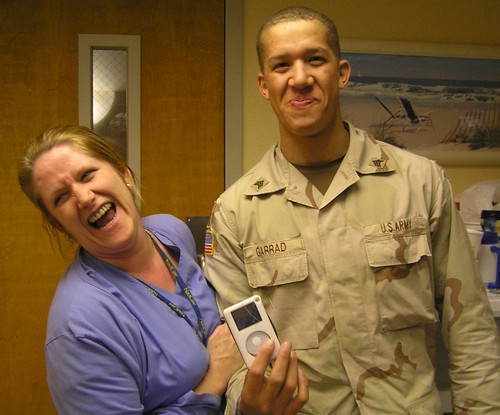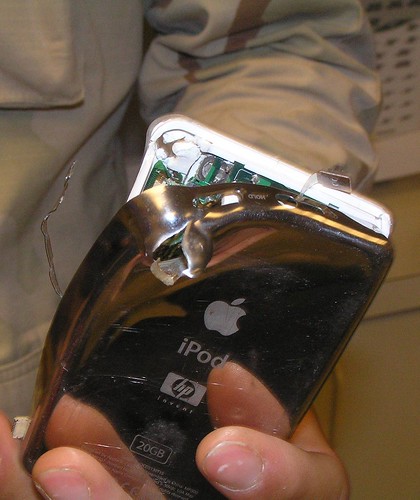McGovern PWNS Cheney
 Former Presidential Nominee George McGovern:
Former Presidential Nominee George McGovern:
VICE PRESIDENT Dick Cheney recently attacked my 1972 presidential platform and contended that today's Democratic Party has reverted to the views I advocated in 1972. In a sense, this is a compliment, both to me and the Democratic Party. Cheney intended no such compliment. Instead, he twisted my views and those of my party beyond recognition. The city where the vice president spoke, Chicago, is sometimes dubbed "the Windy City." Cheney converted the chilly wind of Chicago into hot air.
Cheney said that today's Democrats have adopted my platform from the 1972 presidential race and that, in doing so, they will raise taxes. But my platform offered a balanced budget. I proposed nothing new without a carefully defined way of paying for it. By contrast, Cheney and his team have run the national debt to an all-time high.
He also said that the McGovern way is to surrender in Iraq and leave the U.S. exposed to new dangers. The truth is that I oppose the Iraq war, just as I opposed the Vietnam War, because these two conflicts have weakened the U.S. and diminished our standing in the world and our national security.
In the war of my youth, World War II, I volunteered for military service at the age of 19 and flew 35 combat missions, winning the Distinguished Flying Cross as the pilot of a B-24 bomber. By contrast, in the war of his youth, the Vietnam War, Cheney got five deferments and has never seen a day of combat — a record matched by President Bush.
Cheney charged that today's Democrats don't appreciate the terrorist danger when they move to end U.S. involvement in the Iraq war. The fact is that Bush and Cheney misled the public when they implied that Iraq was involved in the terrorist attacks of 9/11. Iraq had nothing to do with the attacks. That was the work of Osama bin Laden and his Al Qaeda team. Cheney and Bush blew the effort to trap Bin Laden in Afghanistan by their sluggish and inept response after the 9/11 attacks.
They then foolishly sent U.S. forces into Iraq against the advice and experience of such knowledgeable men as former President George H.W. Bush, his secretary of State, James A. Baker III, and his national security advisor, Brent Scowcroft.
Just as the Bush administration mistakenly asserted Iraq's involvement in the 9/11 attacks, it also falsely contended that Iraq had weapons of mass destruction. When former Ambassador Joseph Wilson exploded the myth that Iraq attempted to obtain nuclear materials from Niger, Cheney's top aide and other Bush officials leaked to the media that Wilson's wife was a CIA agent (knowingly revealing the identity of a covert agent is illegal).
In attacking my positions in 1972 as representative of "that old party of the early 1970s," Cheney seems oblivious to the realities of that time. Does he remember that the Democratic Party, with me in the lead, reformed the presidential nomination process to ensure that women, young people and minorities would be represented fairly? The so-called McGovern reform rules are still in effect and, indeed, have been largely copied by the Republicans.
The Democrats' 1972 platform was also in the forefront in pushing for affordable healthcare, full employment with better wages, a stronger environmental and energy effort, support for education at every level and a foreign policy with less confrontation and belligerence and more cooperation and conciliation.
Cheney also still has his eyes closed to the folly of the Vietnam War, in which 58,000 young Americans and more than 2 million Vietnamese died. Vietnam was no threat to the United States.
On one point I do agree with Cheney: Today's Democrats are taking positions on the Iraq war similar to the views I held toward the Vietnam War. But that is all to the good.
The war in Iraq has greatly increased the terrorist danger. There was little or no terrorism, insurgency or civil war in Iraq before Bush and Cheney took us into war there five years ago. Now Iraq has become a breeding ground of terrorism, a bloody insurgency against our troops and a civil war.
Beyond the deaths of more than 3,100 young Americans and an estimated 600,000 Iraqis, we have spent nearly $500 billion on the war, which has dragged on longer than World War II.
The Democrats are right. Let's bring our troops home from this hopeless war.
There is one more point about 1972 for Cheney's consideration. After winning 11 state primaries in a field of 16 contenders, I won the Democratic presidential nomination. I then lost the general election to President Nixon. Indeed, the entrenched incumbent president, with a campaign budget 10 times the size of mine, the power of the White House behind him and a highly negative and unethical campaign, defeated me overwhelmingly. But lest Cheney has forgotten, a few months after the election, investigations by the Senate and an impeachment proceeding in the House forced Nixon to become the only president in American history to resign the presidency in disgrace.
Who was the real loser of '72?
THE VICE PRESIDENT spoke with contempt of my '72 campaign, but he might do well to recall that I began that effort with these words: "I make one pledge above all others — to seek and speak the truth." We made some costly tactical errors after winning the nomination, but I never broke my pledge to speak the truth. That is why I have never felt like a loser since 1972. In contrast, Cheney and Bush have repeatedly lied to the American people.
It is my firm belief that the Cheney-Bush team has committed offenses that are worse than those that drove Nixon, Vice President Spiro Agnew and Atty. Gen. John Mitchell from office after 1972. Indeed, as their repeated violations of the Constitution and federal statutes, as well as their repudiation of international law, come under increased consideration, I expect to see Cheney and Bush forced to resign their offices before 2008 is over.
Aside from a growing list of impeachable offenses, the vice president has demonstrated his ignorance of foreign policy by attacking House Speaker Nancy Pelosi for visiting Syria. Apparently he thinks it is wrong to visit important Middle East states that sometimes disagree with us. Isn't it generally agreed that Nixon's greatest achievement was talking to the Chinese Communist leaders, which opened the door to that nation? And wasn't President Reagan's greatest achievement talking with Soviet leader Mikhail Gorbachev until the two men worked out an end to the Cold War? Does Cheney believe that it's better to go to war rather than talk with countries with which we have differences?
We, of course, already know that when Cheney endorses a war, he exempts himself from participation. On second thought, maybe it's wise to keep Cheney off the battlefield — he might end up shooting his comrades rather than the enemy.
On a more serious note, instead of listening to the foolishness of the neoconservative ideologues, the Cheney-Bush team might better heed the words of a real conservative, Edmund Burke: "A conscientious man would be cautious how he dealt in blood."



